Profile
Dr Lawrencia Abena Wurah: blending banking, politics, and philanthropy to create lasting impact
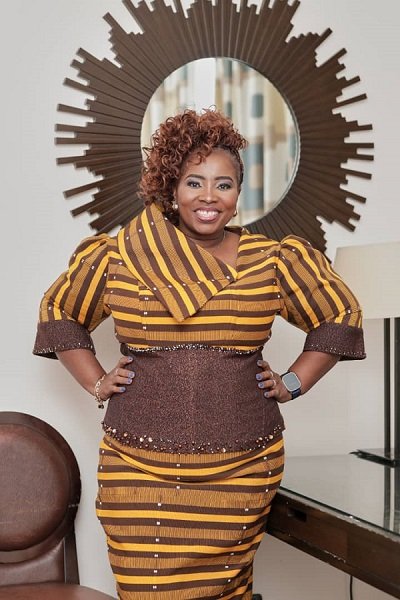
In a world where leadership often bends to convenience, Dr Lawrencia Abena Wurah stands tall as a woman of purpose, resilience, and integrity.
A distinguished Ghanaian banker, politician, and philanthropist, her journey is a shining example of how dedication, education, and compassion can blend to create lasting impact.
Currently serving as the Head of Strategic Sector Development (ICT Focus) at the Development Bank Ghana (DBG), Dr Wurah is championing the growth of Ghana’s digital economy.
Her role focuses on identifying and supporting bankable ICT projects through strategic partnerships with Participating Financial Institutions (PFIs), ecosystem enablers, and policymakers. Her work advances DBG’s mission to promote inclusive growth, innovation, and job creation through digital transformation — a vision she pursues with clarity and conviction.
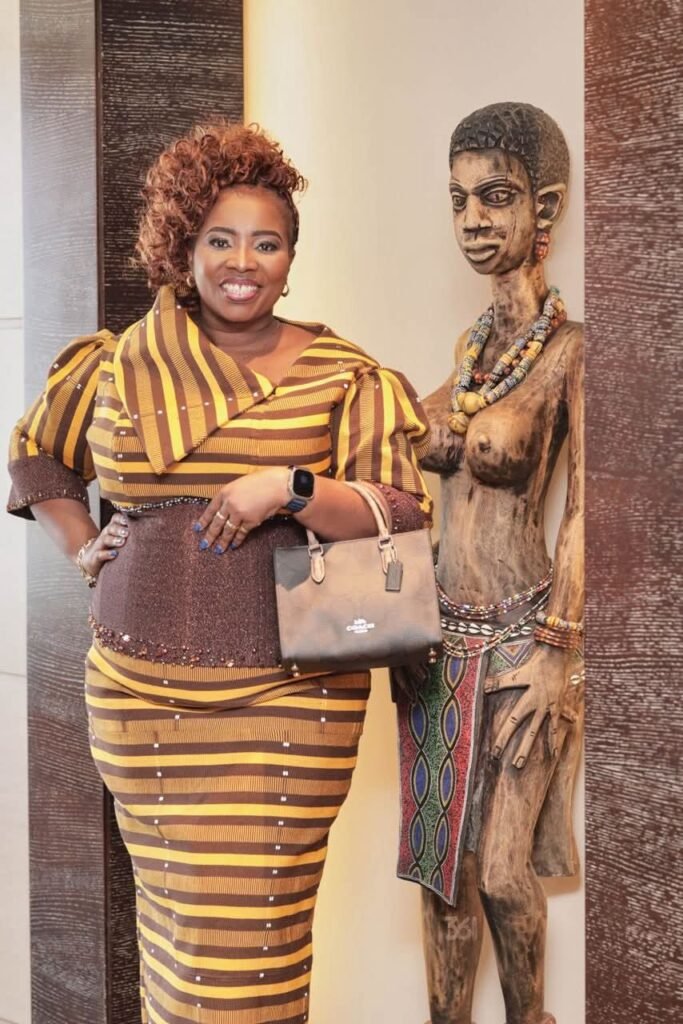
Before joining DBG, Dr Wurah made remarkable contributions to the financial sector during her 11-year tenure at Société Générale Ghana, where she served as a Relationship Manager in the Retail Banking Division.
She managed a diverse portfolio of clients, helping to expand financial inclusion and strengthen customer relationships. Her career at Société Générale reflected her firm belief that banking is not merely about transactions but about trust and empowerment.
Dr Wurah’s success story is grounded in her impressive academic achievements. She holds a Doctorate in Strategic Management and Leadership Practice from OTMH Qualifications, UK, awarded through Marshalls University College, Ghana.
She also holds an MBA in Marketing, a BSc in Marketing, and several professional certifications — all of which underscore her lifelong commitment to learning and leadership excellence.
At her recent graduation, she was honoured with two prestigious distinctions — the Leadership and Organisational Performance Excellence Award and the Resilience and Perseverance Award. These recognitions celebrated not only her academic brilliance but also her determination and strength of character, qualities that continue to define her professional and personal life.
Beyond her thriving career in banking, Dr Wurah is also actively involved in politics, where she channels her passion for leadership, governance, and national development. She believes that politics, when rooted in integrity and service, can be a powerful platform for positive change.
Her philanthropic work is equally inspiring. Deeply committed to empowering young people, particularly women, Dr Wurah encourages them to pursue education and self-belief as tools for transformation.
She mentors many young women, guiding them to discover their potential and purpose in a world that often tells them otherwise.
Away from work, Dr Wurah describes herself as a lover of life. She enjoys reading, singing, and making others happy — a reflection of her belief that joy and kindness lie at the heart of meaningful living.
Her popular personal mantra, #Dey4WhoDey4You, speaks volumes about her loyalty and authenticity — qualities that have endeared her to many.
A proud Ghanaian with roots in both the Volta and Eastern Regions, Dr Wurah embodies optimism, strength, and grace. Her vibrant personality and unwavering determination continue to inspire those around her to dream bigger, serve better, and lead with heart.
Dr Lawrencia Abena Wurah is more than a banker or politician — she is a symbol of possibility, proving that with resilience, purpose, and compassion, one can build bridges between personal success and national progress.
By Edem Mensah Tsortorme
Join our WhatsApp Channel now!
https://whatsapp.com/channel/0029VbBElzjInlqHhl1aTU27
Profile
Serving Humanity with Love, Humility, and Integrity …The story of Hajia nadia abbas alhassan iv
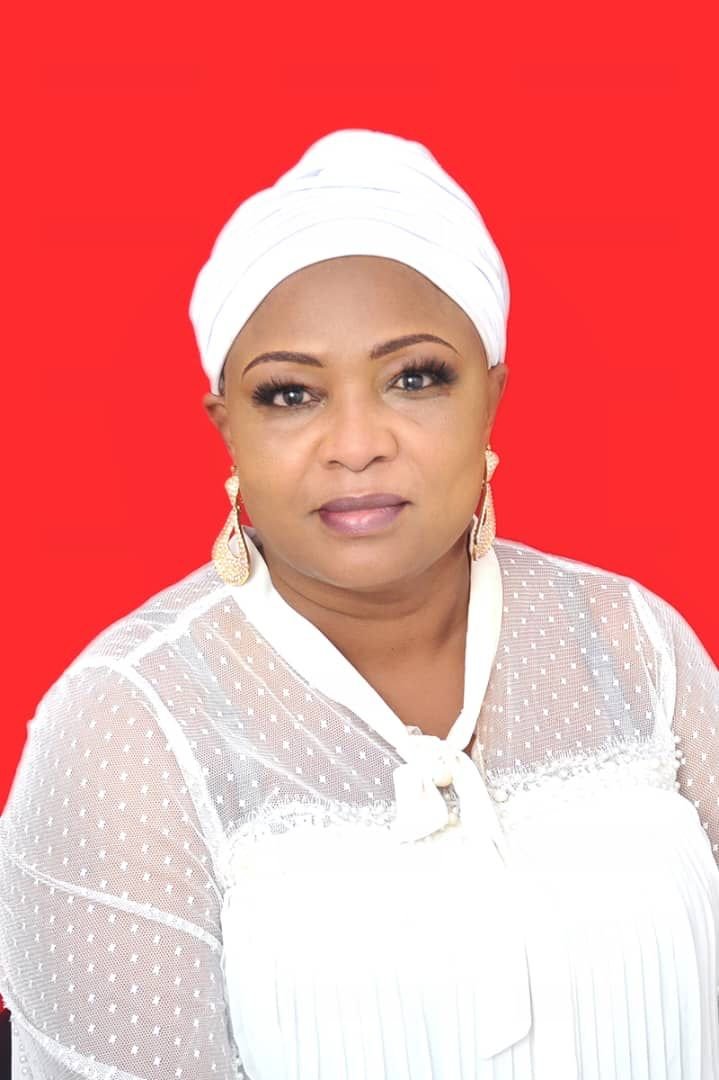
In a time when communities yearn for authentic leadership grounded in compassion and purpose, one name has steadily risen to embody the promise of renewal — Hajia nadia abbas alhassan iv
To many, she is more than a personality; she is a movement. To the youth, a source of inspiration; to women, a voice of courage; and to society, a symbol of service anchored in divine calling.
For Nadia, leadership is not an ambition born of politics but a calling from the heart, one she describes as a divine mandate to serve humanity with love, humility, and integrity.
“It is a calling from the divine; putting smiles on people’s faces gives me internal joy,” she says.
This philosophy has shaped her journey from grassroots advocacy to a broader mission of empowerment — particularly among women and young people. Her life is a testament that true leadership begins not with titles, but with service.
Those who know Nadia describe her as a leader of quiet strength — one who acts more than she speaks and listens before she leads. Her influence grew organically through community work, where she devoted herself to addressing everyday struggles, from mentoring young girls to supporting widows and championing education in underserved areas.
Nadia believes leadership should emerge from empathy, saying,
“A true leader must first understand pain; you cannot lead people you don’t listen to.”
Her commitment to servant leadership is reflected in her philosophy: to lead is to serve, not to rule. She consistently advocates for leadership models rooted in compassion rather than competition, believing that the true measure of power lies in how much good it can achieve.
Women and Youth Empowerment
Women’s empowerment stands at the core of Nadia’s mission. Through mentorship, advocacy, and community initiatives, she has worked to uplift women and young girls, encouraging them to see beyond limitations and societal barriers.
She insists that empowering women is not just a moral duty but a necessity for national development.
“When you empower a woman, you empower a generation,” she often says.
Her approach blends mentorship with practical support, ensuring that women gain not only confidence but also opportunities. Her campaigns have emphasised education for girls, entrepreneurship for women, and protection for the vulnerable. She has called on society to rethink how it values women — urging both men and women to become partners in progress rather than opponents in struggle.
Equally passionate about the youth, Nadia describes young people as “the heartbeat of change.” Her initiatives focus on nurturing their talents, guiding them toward purpose-driven careers, and instilling values of discipline and self-belief.
“We must create systems that help young people discover who they are and what they can contribute,” she says.
Her mentorship programmes focus on leadership training, community service, and personal development — turning potential into performance.
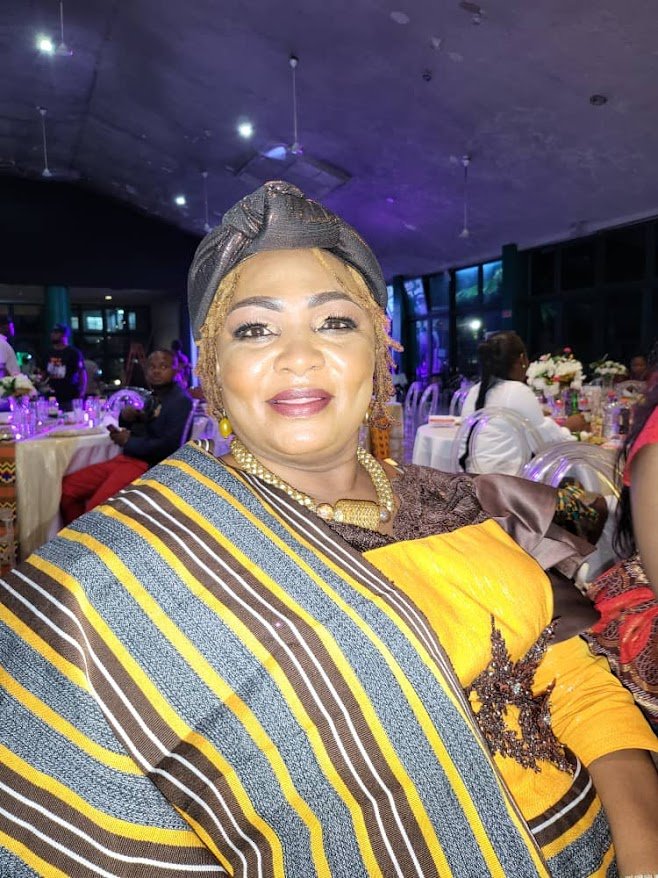
A Life of Compassion and Faith
Nadia’s story is also one of compassion in action. Beyond public appearances and advocacy, she is known for her quiet acts of kindness — supporting the sick, helping orphans, and standing with families in crisis.
Her leadership is deeply spiritual. To her, service to humanity is service to God.
“Love knows no boundaries; it sees no colour, creed, or status. It embraces all and seeks the good in every person,” she says.
This universal message of love and unity defines her worldview. She believes society can only progress when grounded in empathy and mutual respect.
For Nadia, protecting people’s dignity is non-negotiable. She has often spoken against corruption, discrimination, and all forms of social injustice.
“To protect is not merely to defend,” she explains, “but to ensure that every person can live in dignity and safety.”
She describes her work as a divine mandate — a call to embody compassion in leadership. To her, faith and service are inseparable; leadership must be guided by moral conviction and divine purpose.
“Nadia Season” — A Movement of Hope
Her supporters call this moment “Nadia Season” — a symbolic expression of renewed hope and collective awakening. It is less about politics and more about purpose; less about power and more about people.
She envisions a society where leadership is measured not by how loudly one speaks, but by how faithfully one serves.
“This is no longer a time for empty promises,” she says. “It is a time for proven purpose — for unity, compassion, and results.”
Hajia Nadia Abass Abubakar’s journey is still unfolding, but her impact is already being felt. She has inspired a generation to see leadership through the lens of service.
Her philosophy of love, equality, and compassion resonates deeply with those who believe in a better Ghana and a more humane world.
Her story is not just about one woman’s ambition but about a people’s awakening — a reminder that leadership is not inherited, but earned through service.
By Esinam Jemima Kuatsinu
Join our WhatsApp Channel now!
https://whatsapp.com/channel/0029VbBElzjInlqHhl1aTU27
Profile
Albert Litela Obidiaba: The artist who wove Ghana’s soul into the King’s Baton
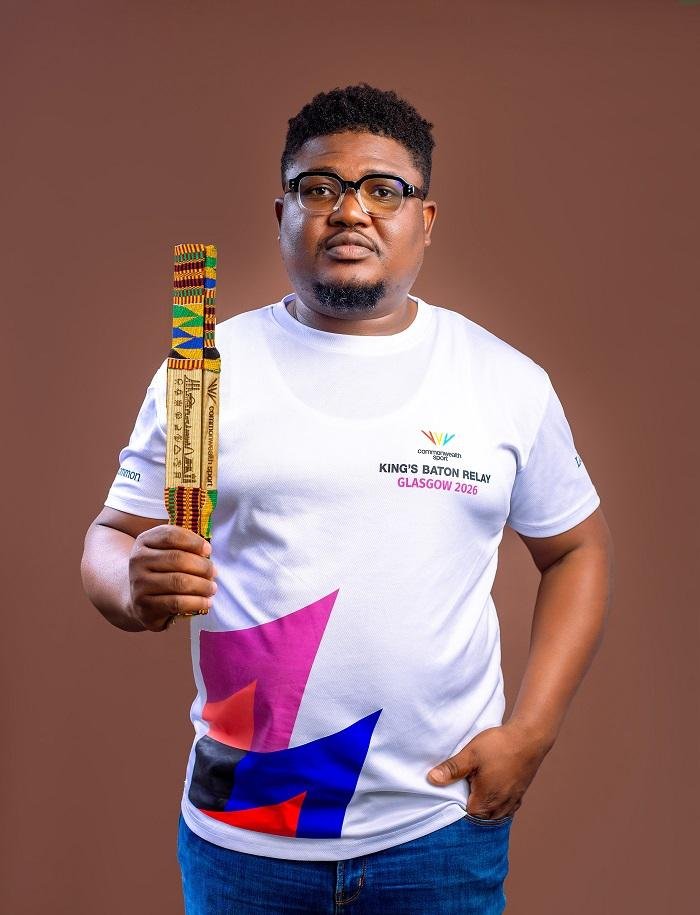
When the world’s eyes turn to the King’s Baton on its global journey, one of Ghana’s most profound artistic stories travels with it. It will be a story of creativity, culture, and national pride crafted by Albert Litela Obidiaba.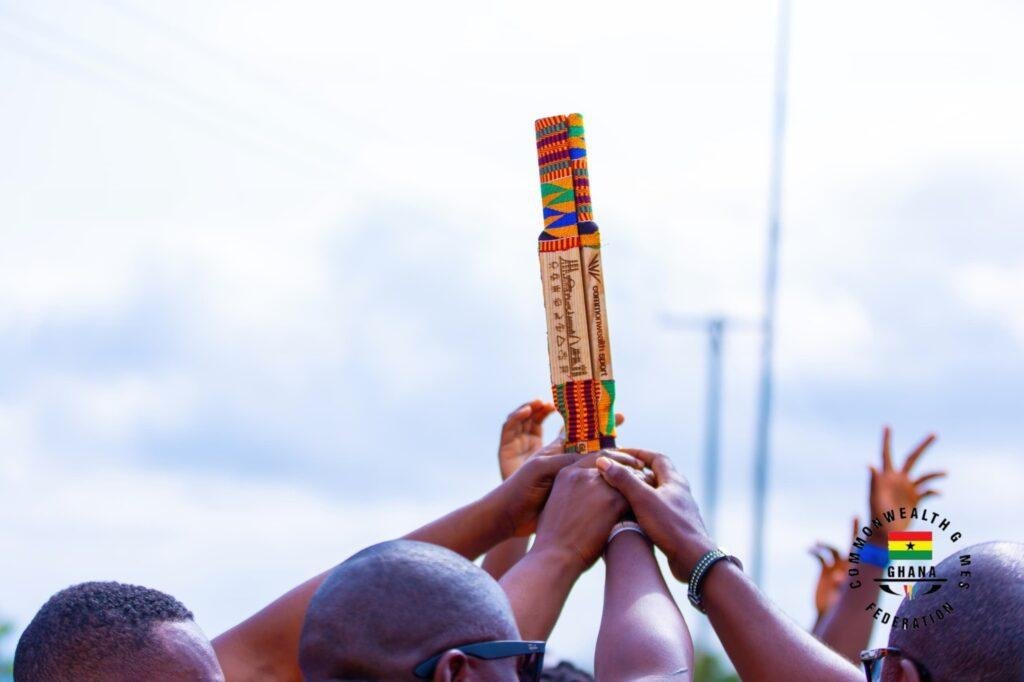
From the quiet town of Old Baika in the Oti Region, Albert’s journey as an artist has always been about telling stories. It is not just through words, but through symbols, textures, and meaning.
“From a young age, I was drawn to the power of art, knowing how colours and textures can capture not just emotion but culture and identity,” he recalls.
Today, his name has become synonymous with innovation rooted in traditional bridge between Ghana’s past and its global creative future.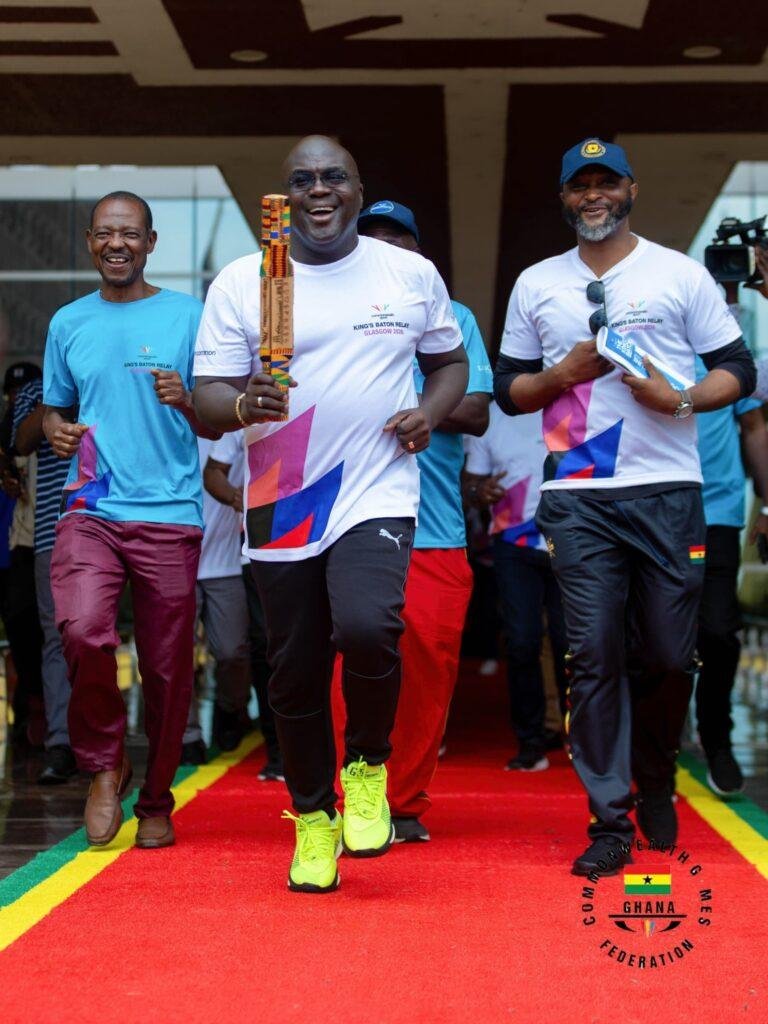
Albert’s love for art was born from curiosity. Surrounded by the vibrancy of Ghanaian culture; the patterns of kente, the stories behind Adinkra symbols, and the textures of daily life, he began sketching and crafting early on.
“Simple things told deep stories,” he says. “That fascinated me.”
As he matured, his art evolved into a personal mission to preserve and reinterpret Ghana’s heritage for a modern audience. His style reflects a seamless blend of culture and contemporary design, each piece a narrative of unity, history, and pride.
“I see art as storytelling through form and symbolism, it should feel rooted in purpose yet speak to today’s world,” he explains.
When the call came to design Ghana’s version of the King’s Baton, Albert saw it as both a national duty and a creative calling.
Recommended by mentors like Mr Charles Osei Asibey, who trusted his talent and understanding of Ghanaian symbolism, he embraced the project wholeheartedly.
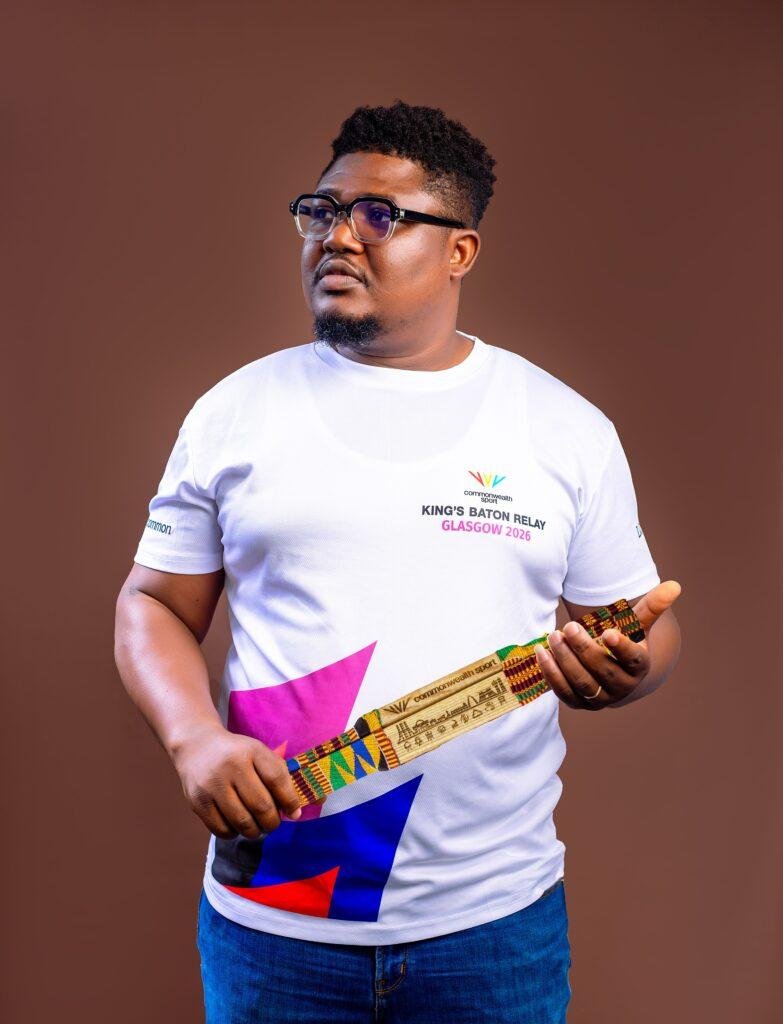
His vision was clear; to create a piece that would embody unity, pride, and the enduring spirit of Ghana.
Drawing from traditional motifs, he integrated textures inspired by kente weaving, representing hard work, continuity, and creativity. The golden tones symbolise strength and dignity, while the contours and natural motifs mirror Ghana’s landscapes and people.
“The King’s Baton had to tell our story of who we are, what we value, and how we see the world, it is more than art, it is identity in motion,” he said.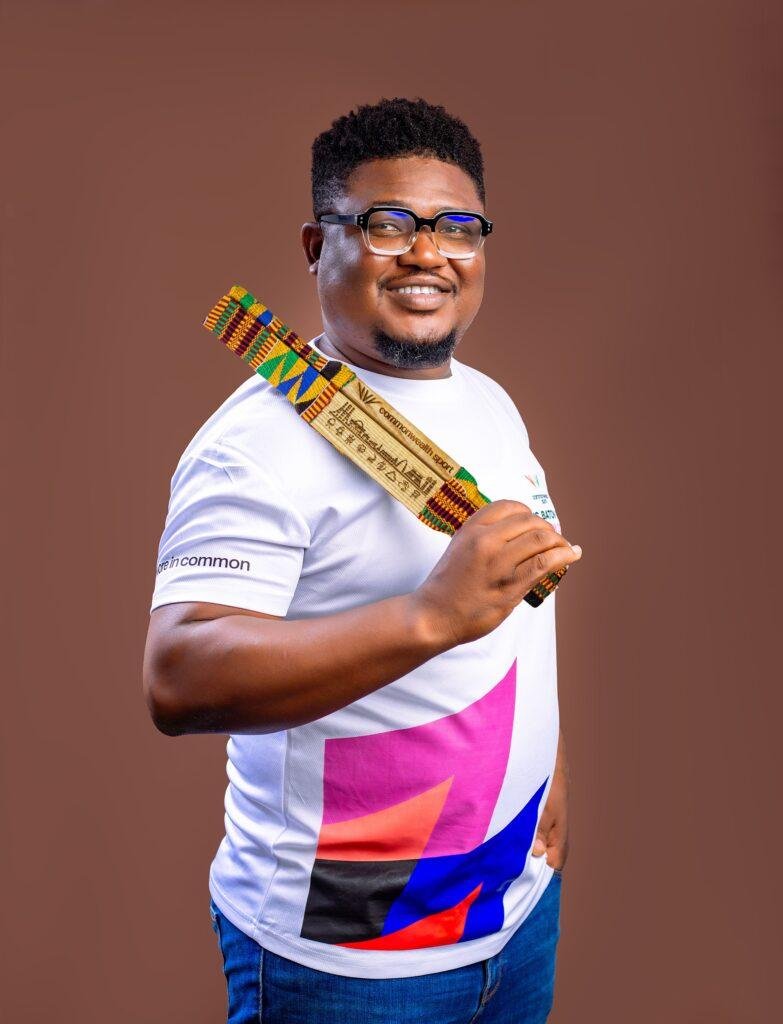
Every etch, every pattern carries meaning. From concept to completion, the entire process took three intense weeks which were filled with research, design sketches, consultation, and collaboration with skilled artisans.
“It was days and nights of work, but a lifetime of meaning,” he says with quiet pride.
Creating a design that represents all of Ghana’s diverse cultures was no small feat. Albert had to balance aesthetics, authenticity, and technology thereby using sustainable wood, carefully treated and certified, to reflect the nation’s commitment to nature and preservation.
“It wasn’t easy finding the right mix,” he admits. “But those challenges pushed me to think deeper. They made the final piece stronger — both artistically and symbolically.”
For Albert, Ghanaian culture is both muse and message. His works echo the values of unity, strength, persistence, and wisdom, drawn from Ghana’s traditions.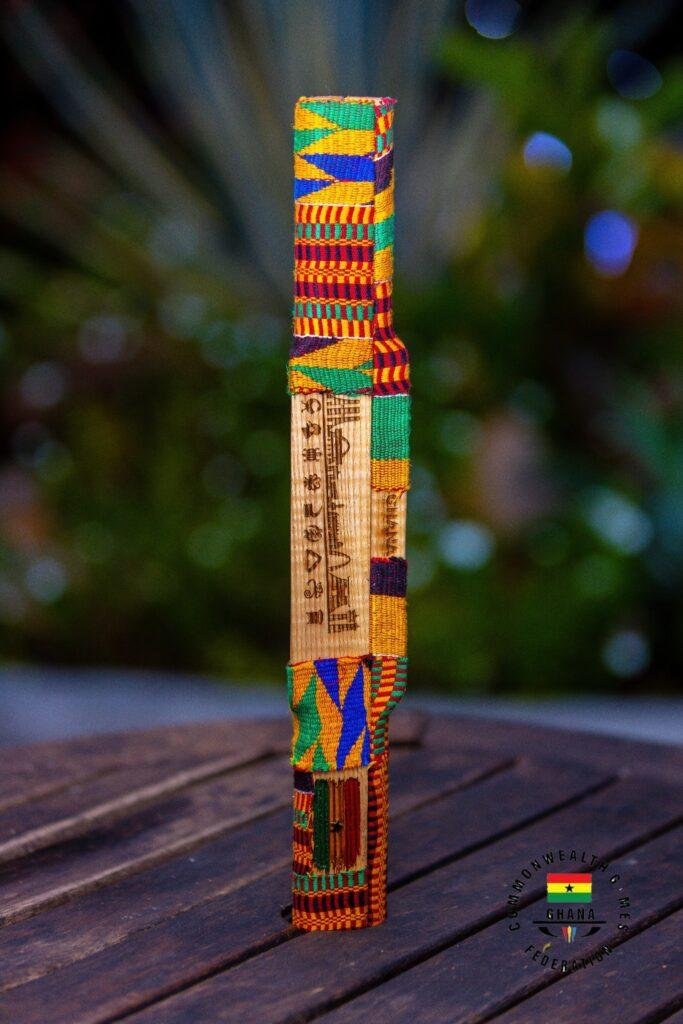
“Art preserves who we are and every line and symbol tells a story of belonging,” he said, and believes art is one of the most powerful tools for building national pride.
Designing the King’s Baton has been a defining moment in his creative journey and that it deepened his appreciation for cultural storytelling. “It taught me that creativity is also a form of service,” he said.
The experience has opened new professional doors, but more importantly, it gave him a renewed sense of purpose making him embrace a call to national duty.
“My soul will be glad even after my days on earth are over,” he said beaming with smiles.
Beyond the King’s Baton, Albert has worked on numerous projects celebrating Ghanaian identity through contemporary art and design. His ongoing works explore symbolism and heritage in new forms which includes blending materials, stories, and styles from across Ghana’s regions.
He is currently preparing projects that continue the conversation the baton began. They are about unity, creativity, and Africa’s evolving artistic voice.
To young artists aspiring to make their mark, Albert’s advice is for them to believe deeply in their craft and that the world is always looking for authenticity “which comes from knowing who you are and where you come from.”
On how he wants to be remembered, he said, “I want to be remembered as an artist who used creativity to celebrate culture and connect people. If my name is remembered as the one who designed Ghana’s version of the King’s Baton, that will be enough, because it means I carried Ghana in my hands, and shared her with the world.”
By Esinam Jemima Kuatsinu
Join our WhatsApp Channel now!
https://whatsapp.com/channel/0029VbBElzjInlqHhl1aTU27






